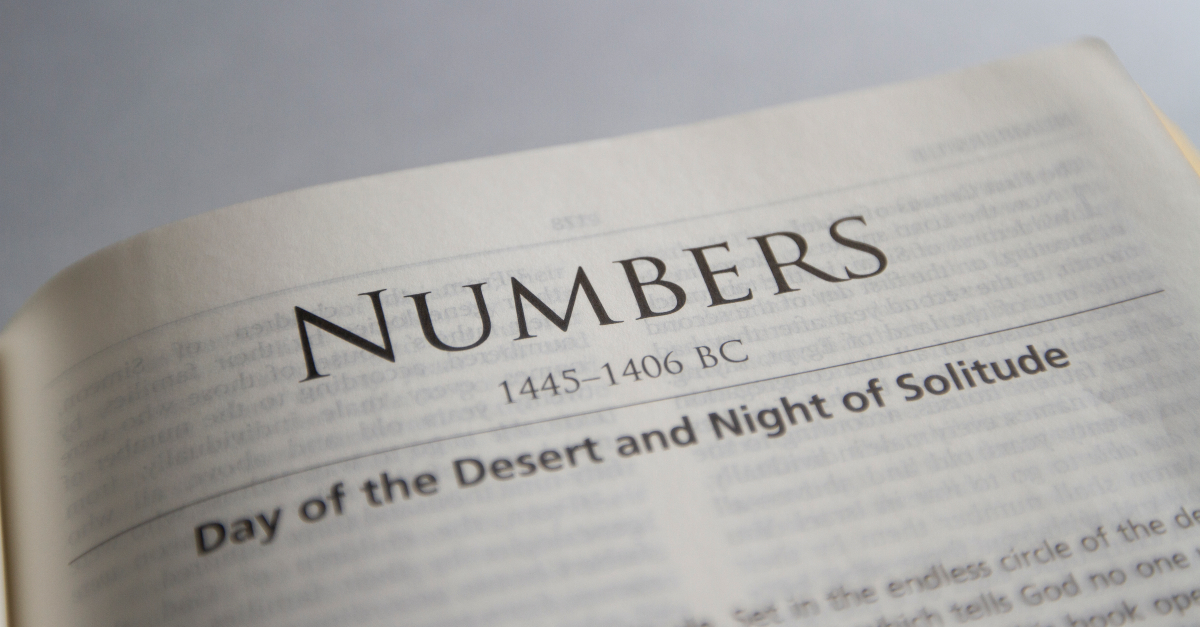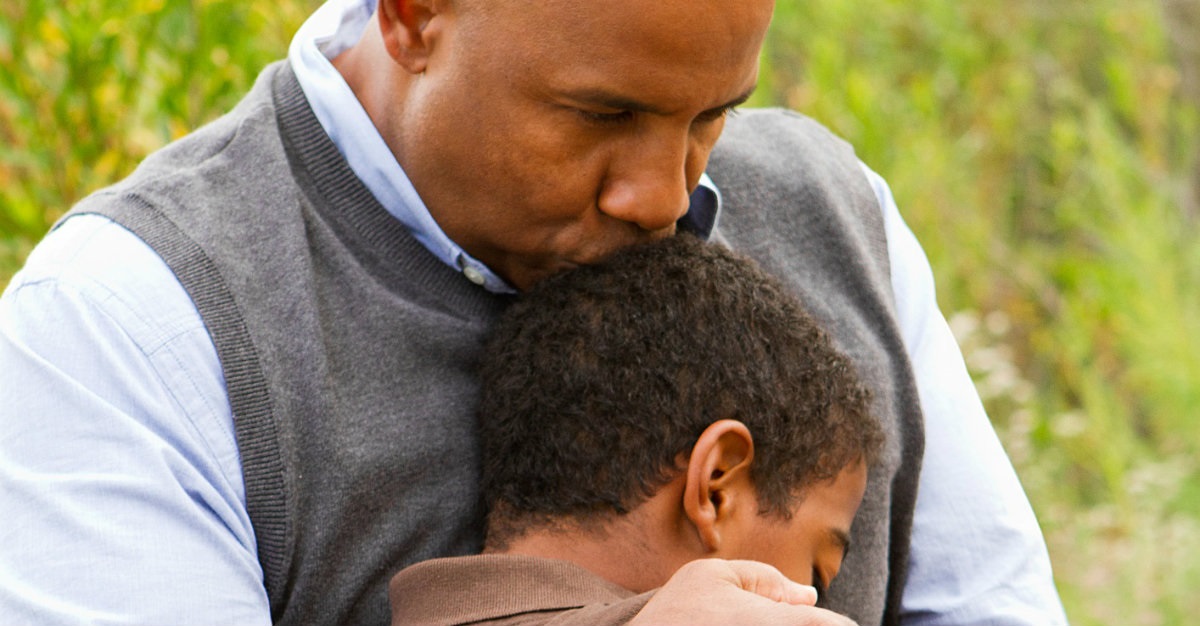The LORD bless you and keep you; the LORD make his face shine on you and be gracious to you; the LORD turn his face toward you and give you peace. – Numbers 6:24-26
Blessings and benedictions are common throughout the world and come in many different forms.
We often encourage others in their goals and offer short greetings to those we meet. We wish others peace and prosperity and ask God to protect those we love. We bless people when they sneeze and hear people (even those who have no interest in God) use the phrase, “God Bless You” in their daily lives.
Pastors and preachers frequently end their sermons with some sort of benediction, and we traditionally conclude our letters and messages with some sort of final blessing or salutation.
Most blessings are simple sayings that communicate kindness and goodwill to those they are directed towards. In the Bible, however, we learn that God’s blessings carry far more spiritual significance than just a casual greeting or obligatory saying.
God’s blessings are filled with His favor, His promises, His power, and His presence. And we see in Scripture that God loves to bless His people. There is enormous power in the blessings of God. In fact, in the Old Testament, God provided instructions for how his priests were to bless the nation of Israel.
Today, those instructions provide an incredible template for how we should bless others and an explanation of why God’s blessings are so powerful even still.
 Photo Credit: ©GettyImages/thanasus
Photo Credit: ©GettyImages/thanasus
What Does 'May the Lord Bless You and Keep You' Mean?
Here, we find God’s heart for His people on full display.
In the words of Aaron, who led the priests and Levites, the nature of God’s blessing to every person was revealed.
“The Lord bless you and keep you.” (Numbers 6:24)
It’s clear from these words and the countless examples provided in the Old Testament, that God would never abandon His people nor break covenant with them, even if they walked out on Him or betrayed their end of the bargain.
As the prophet Isaiah wrote, “I (the Lord) have put my words in your mouth and covered you with the shadow of my hand— I who set the heavens in place, who laid the foundations of the earth, and who say to Zion, ‘You are my people.’” (Isaiah 51:16)
“I (the Lord) will take you to be my people, and I will be your God, and you shall know that I am the Lord your God, who has brought you out from under the burdens of the Egyptians.” (Exodus 6:7)
This was the nature of the covenant God had made. They were His people and He was their God. He would “keep” them in the shadow of His wings and never let go. No matter what (Psalms 17:8).
The blessing continues:
“The Lord make His face shine on you, and be gracious to you. The Lord lift up His countenance on you, and give you peace.” (Numbers 6:25-26)
According to Matthew Henry, this blessing communicates the heart of God in its promise to protect His people from evil (2 Thessalonians 3:3), pardon them from their sin (Micah 7:18), and provide peace in the midst of chaos (Philippians 4:7).
As the sun shines upon the earth, so God’s face would shine on His people to enlighten, comfort, and renew them. Likewise, the Lord would lift “His countenance” on His people as a father looks upon his children or we are inclined to greet a friend we’re glad to see.
The bottom line is, God delights in His people and takes pleasure in their presence and well-being.
 Photo Credit: ©Sparrowstock
Photo Credit: ©Sparrowstock
Where Does 'May the Lord Bless You and Keep You' Appear in the Bible?
You may have heard the phrase, “the Lord bless you and keep you” at some point in your life. It’s the kind of benediction you’d expect to hear at the end of a sermon or by a pastor to his congregation. Well, guess what? That’s exactly how it was originally delivered.
The book of Numbers, one of the first five books of the Old Testament and fourth book in the Hebrew Torah, was written by Moses to chronicle the 38-year period of Israel’s wandering the desert following the covenant made with God at Mount Sinai. In the book, Moses outlined God’s commands to His people along with specific details for how Moses and the priests were to lead the children of Israel.
Following the national census and instructions for the layout of the tabernacle (or tent of worship), God commanded Aaron and the priests to pronounce a blessing over the people, which is where we get this familiar blessing (Numbers 6:22-27).
Why Was Aaron Commanded to Bless the People?
It’s important to remember that the priests, led by Aaron and the rest of the Levites, were set apart to lead the people in worship and spiritual teaching. The priests were God’s chosen intercessors and a direct mouthpiece to the people. Charged with relaying God’s commands, the priests were also the ones who appeared before God to make sacrifices on behalf of the people.
For this reason, the priests were trusted by the people and looked to for guidance and instruction.
When God commanded Aaron, the high priest, to bless the nation, He wanted His people to know His heart. Even in their disobedience and unfaithfulness, God still wanted to bless His people. In receiving His instructions and law, the people would be blessed with the knowledge of God and the means to live a holy and pleasing life. The priests would be the instrument of this blessing.
 Photo Credit: ©GettyImages
Photo Credit: ©GettyImages
'May the Lord Bless You and Keep You' Reminds Us that God’s Name Is Written on Our Hearts
Similar to the priests of Moses’ day, pastors and spiritual leaders today are called to care for God’s church. They, too, are called to bless God’s people, but it is not their blessing they are commissioned to deliver. The blessing of Numbers 6 carries the power of God’s name, not necessarily Aaron’s. “So they shall invoke My name on the sons of Israel, and I then will bless them.” (Numbers 6:27)
God had given His name to Israel and marked them as His people. There was a sense of belonging to this covenant. The children of Israel were His chosen people, and with that came the blessing of his presence and favor (Psalms 33:12).
When Jesus entered the world, he stepped in as our High Priest, blessing all of humanity with the gift of salvation, made possible through his perfect sacrifice on the cross. In doing so, Jesus formed a new covenant with humanity and fulfilled the role of the High Priest by interceding on our behalf before the Father. He took our sin upon himself so that we might be saved and have direct access to the Father.
We, too, now carry the name of Jesus Christ, which he has written on our hearts. And as the children of Israel were called to be a blessing to the nations (Genesis 22:18), today, Christ’s followers are also called to bless others.
We have been given an incredible responsibility and commission. As we receive, we are called to give. Blessed, we are commanded to bless. In doing so, we not only become participants in the gospel of Jesus Christ, we become active agents administering the blessings of God’s love to the world.
Again, it is not necessarily our blessing we share. Our words may offer kindness and encouragement to those we meet. God’s blessings, however, spoken in His name, offer the joy of His presence, the promise of His peace, and the power of His forgiveness and salvation. That is a blessing far too valuable to keep to ourselves. Like Aaron, our job is to proclaim and deliver it.
As the apostle Paul wrote, “praise be to the God and Father of our Lord Jesus Christ, the Father of compassion and the God of all comfort, who comforts us in all our troubles, so that we can comfort those in any trouble with the comfort we ourselves receive from God.” (2 Corinthians 1:3-4)
In all things, “may the Lord bless you and keep you.”
In the name of our Lord Jesus Christ, Amen!
Photo Credit: ©©Getty Images/Arkira
 Joel Ryan is an author, writing professor, and contributing writer for Salem Web Network and Lifeway. When he’s not writing stories and defending biblical truth, Joel is committed to helping young men find purpose in Christ and become fearless disciples and bold leaders in their homes, in the church, and in the world.
Joel Ryan is an author, writing professor, and contributing writer for Salem Web Network and Lifeway. When he’s not writing stories and defending biblical truth, Joel is committed to helping young men find purpose in Christ and become fearless disciples and bold leaders in their homes, in the church, and in the world.